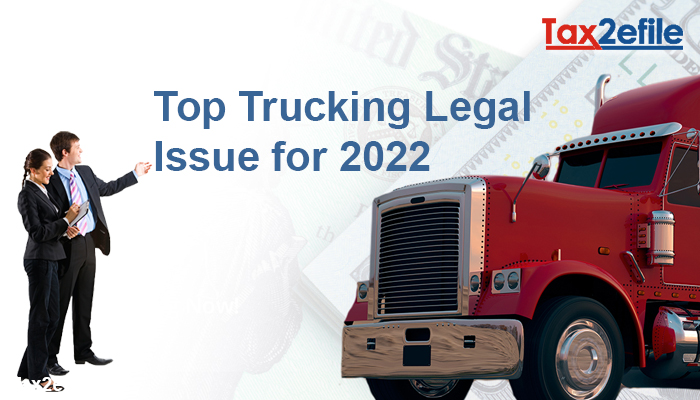- September 12, 2022

Forecasts suggest that between 2020 and 2050 the freight activity will grow up to 50%, which is 28.7 billion tons. There is a significant legal issue that surrounds this field as well. If the fleets must clear their trouble with their transports and favor themselves, they should create a solid game plan and keep legal issues at bay. Here are some of the top legal issues the trucking business could face in 2022.
The top trucking legal issues for the year 2022
The top legal issues the trucking business faces, and might face in the future are here.
- Liability of the mobile apps:
There are chances for liability issues to arise when truckers rely on mobile apps for navigation, route upgradation, and messaging. There are chances for the drivers to get distracted when their contractors use messaging apps to give them updates or directions.
- Cross district laws:
The states within the United States have different laws, concerning trucking liability and cargo. Shipping between the US and Canada, and Mexico is also challenging. Carrying loads across the border is a challenge for truckers and a complex legal entity. In the event of an accident, the different legislation laws add another layer of complexity.
- Autonomous driving technology:
This innovative technology is also influencing the trucking industry significantly. Autonomous trucks have already hit the road and paves way for frightening legal queries. If a self-driving truck involves in an accident, it is not easy to hold the company that deployed the vehicle and developed the software, accountable.
- Driver Shortages:
Trucking firms already suffer an aging workforce and a lack of fresh talent. The standards of hiring young drivers are also increasing, making the market more stringent. Apart from this hiring practice, there is also a host of legal challenges, that differentiate the employee and the contractors.
- Telematics and data management:
The telematics devices introduce the truckers to expanding data streams. They also carry the risk of exposing too much data. A telematics data management policy could determine ways to store, protect and use data. This should address the problems of data collection, data security, and storage. The best way to improve the fleet’s value is to stress cybersecurity and data privacy concerns.
- The volatility of the transportation market:
The transportation market in recent times is affected by diverse factors such as the pandemic, the Ukraine war, increasing fuel prices, inflation of shipping prices, etc. The fixed-price contract can cause legal troubles, given the rise in the cost of other entities. The floating price reimbursement model that shifts the risks to the broker can also invite legal trouble. It becomes good to follow a model that shares the risk of volatile fuel prices, including ways to adjust prices based on fuel cost.
Bottom Line:
To avoid such legal hurdles and ensure the smooth running of the business, the trucking businesses should design a driver-centric culture and take all proactive measures to solve the issues. This will help them to overcome the driver shorter, lower their insurance cost, improve driver retention, and avoid delays.


